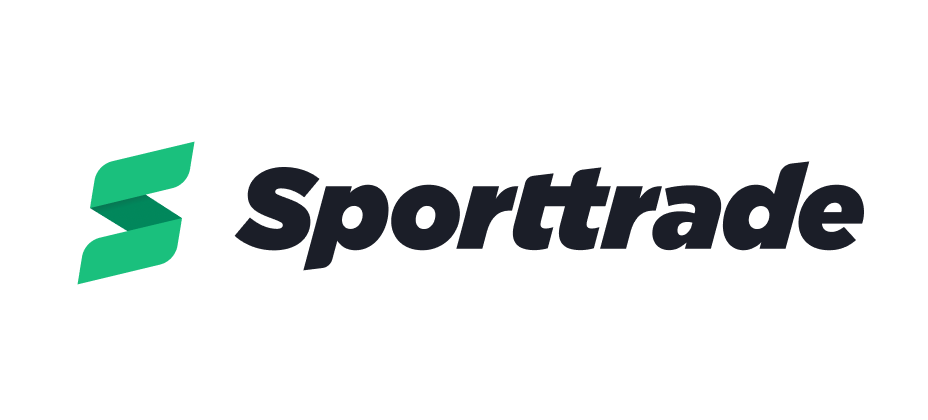Whack-A-Mole
The recent focus on Bovada overlooks the breadth of the black market, and the unending game of whack-a-mole the cease-and-desist letters create.
The Bulletin Board
VIEWS: Bovada gets another cease-and-desist letter; does it matter at this point?
LEGAL & LEGISLATIVE UPDATES: Illinois 2025? California bill would allow Tribes to Sue Cardrooms; NH Casino Owner Gets Extension.
NEWS: Monopolies Matter Part 1: Hard Rock would become the top online casino in the US if it receives a Florida monopoly.
NEWS: Monopolies Matter Part 2: Bally’s national online casino market share hits an all-time high, partly thanks to its Rhode Island monopoly.
NEWS: The World Series of Poker Main Event set a new attendance record for the second consecutive year.
AROUND the WATERCOOLER: Some industry observers are as accurate as a Mark Price free throw.
STRAY THOUGHTS: The location of the modern-day Library of Alexandria might surprise you.
SPONSOR’S MESSAGE - Sporttrade was borne out of the belief that the golden age of sports betting has yet to come. Combining proprietary technology, thoughtful design, and capital markets expertise, our platform endeavors to modernize sports betting for a more equitable, responsible, and accessible future.
Sporttrade’s newest feature, The Tape, prints all trades made on the app in real-time.
If a Head Is Cut Off, Two More Shall Takes Its Place
West Virginia is the latest state to send Bovada a cease-and-desist letter, joining Michigan, Colorado, and Connecticut. Several other states are considering doing the same.
The letters are long overdue and a good first step in combatting offshore online gambling sites. That said, Bovada’s compliance with the letters is far from a win.
First, there is no guarantee that Bovada will continue to comply.
A quick look at its track record shows that the company does a great job evading law enforcement and covering its tracks. Over the years (and this is a short and simplified list), it has undergone a name change from Bodog to Bovada, switched its cc TLD (country code domain extension) to .lv., and was head-scratchingly acquired by Ignition, which was a little-known company at the time — I’ll let you the reader speculate on the sale. If you want to dig into Bodog/Bovada, you might want to set aside a week or so of your time.
Second, Bovada isn’t the offshore market. There is no shortage of alternative offshore sites still serving Michigan and the other states Bovada has departed, and if a state or states did manage to get the current crop to leave, a new group would move in to fill the void.
The answer to the offshore market is twofold:
Make it difficult for them to serve customers in the state by going after reachable targets like payment processors or even affiliates and advertisers.
Create a legal market that is more appealing to bettors who have yet to shift to legal sites.
I doubt either will come to pass in any meaningful way, but even if there is a severe crackdown on offshore sites, there will always be bettors who prefer offshore sites for various reasons, which I’ve discussed before.
Legislative Updates: Illinois 2025? CA Bill Would Allow Tribes to Sue Cardrooms; NH Casino Owner Gets Extension
Another online casino push in Illinois in 2025: In an interview with Poker Industry PRO, Illinois State Rep. Edgar Gonzalez Jr. said what we all know: the VGT industry and small business owners sank any hope of online casino legalization in 2024. Gonzalez Jr. hopes that 2025 will allow more opportunities for discussion. “Our priority this session was the budget, and although igaming was presented as a potential new revenue stream for the state, members of the House and Senate were wary of its implementation, especially after VGTs expressed opposition to the bill,” Gonzalez told PRO.
California bill allowing tribes to sue cardrooms advances: A bill that would give California tribes standing to challenge the long-disputed house-banked games offered at California cardrooms is making progress. The bill, SB 549, passed the Assembly Governmental Organization Committee in a 15-1 vote last week. As California Nations Indian Gaming Association Chairman James Siva previously said, “Previous Tribal lawsuits seeking a hearing on these cardroom-controlled games were dismissed in both state and federal court not on the legal merits of the practice, but merely on procedural grounds. SB 549 would give Tribes legal standing.”
Previous coverage on STTP: The backstory, Cardroom opposition, Tribal support
New Hampshire casino owner gets a 90-day extension: Beleaguered New Hampshire casino owner Andy Sanborn is locked in a bitter dispute with state regulators, with both sides distrustful of the other. Sanborn, accused of misappropriating COVID relief funds, scored a legal win and now has until September 30 to sell his Concord Casino. The deadline is important, as the casino’s horseracing license hangs in the balance; if Sanborn cannot find a buyer, the casino will lose its #1 asset.
Monopolies Matter Part 1: Hard Rock’s FL Opportunity
With the Supreme Court deciding not to hear the Florida sports betting case, leaving the appeals court ruling in place, the door has been left open for the Seminole Tribe to compact with the state for online casino games.
According to Eilers & Krejcik Gaming (a newsletter sponsor), if Hard Rock were granted an online casino monopoly in populous Florida, it would become the largest US online casino operator by GGR.
Pay close attention to the “if” in that statement. First, will Florida legalize online casino gambling? That has been a difficult lift across the US. Second, will it hand the Seminoles a monopoly?
The Seminoles would oppose any non-monopoly proposal, but potential stakeholders would fight tooth and nail for access to the state. Basically, Florida could become very messy. California-level messy.
As I previously wrote regarding the SCOTUS decision:
“The case doesn’t allow tribes with a gaming compact (even one that includes sports betting) to offer statewide mobile betting. For that to happen, several boxes must be checked:
The state and tribe need to enter into a compact
The compact must include mobile betting
The state must legally define mobile bets as taking place at the server
“Those boxes require the tribe and the state to be on the same page.”
The big change the SCOTUS decision brings about is that tribes will now have leverage during compact negotiations for the first time. That doesn’t mean compromises will be the new norm. Rather, it’s likely to lead to states walking away rather than tribes.
EKG believes online casinos via tribal compacts “will be very sparingly adopted.” I would add, at least in the coming years. Down the road, it could simply become “the way.”
Monopolies Matter Part 2: Bally’s RI Monopoly Momentum
Another interesting nugget from the latest EKG Online Casino Monitor notes that the Top 3 (DraftKings-Golden Nugget, FanDuel, and BetMGM) maintained their market share, but “Lower down the ranks… the upward momentum at two land-based brands—Caesars and Bally’s—continued.”
Per EKG, Caesar’s updated app (previously covered on STTP) is driving its gains. Bally’s all-time high market share (at 2%) was due to growth in New Jersey and Pennsylvania and its online casino monopoly in Rhode Island.
Since its March launch, Bally’s Rhode Island casino has generated $6.1 million in GGR in just under three months. May was its best month at $2.25 million. For context, in New Jersey, Bally’s pulled in $8.5 million in May.
SPONSOR’S MESSAGE - SUBSCRIBE NOW to Zero Latency, the new podcast from Eilers & Krejcik Gaming that provides unparalleled insight into the U.S. online gambling industry through interviews with industry insiders and analysis from EKG experts.
Poker Is Back, Baby!
Well, live tournament poker is, considering the World Series of Poker Main Event set a new all-time attendance record, breaking last year’s mark by a few dozen entries: 10,043 to 10,112.
Clearing the 10,000-player barrier in two consecutive years is an incredibly impressive feat. The tournament never crossed the 9,000-player threshold, not even during the peak Poker Boom years. The previous high-water mark was set in 2006 when 8,773 players entered the tournament.
I have two quick thoughts on this:
First, as I wrote last year, we need the appeal to go beyond live tournaments for poker to have another boom. I would love to see some of the WSOP magic rub off on brick-and-mortar cardrooms across the country.
Second, we need to figure out how to mobilize this massive player base and demand that states legalize online poker. As I wrote in a column for Casino Reports yesterday, “Poker And Casino Players Deserve The Same Protections As Sports Bettors.”
Around the Watercooler
Social media conversations, rumors, and gossip.
Richard Schuetz’s suggestions have the same accuracy rate as a Mark Price free throw.
As I tweeted in response, “This might result in operators and regulators eliminating a lot of the ambiguity.” Meaning, as lengthy and ambiguous as our gambling laws are, the terms and conditions aren’t much better.
Across the board, the gambling industry needs two things: Transparency and clarity.
Stray Thoughts
The more you think about this, the more it rings true:
“Is YouTube just the new Library of Alexandria?” ~ Seth “Sensei Seth” Adams






